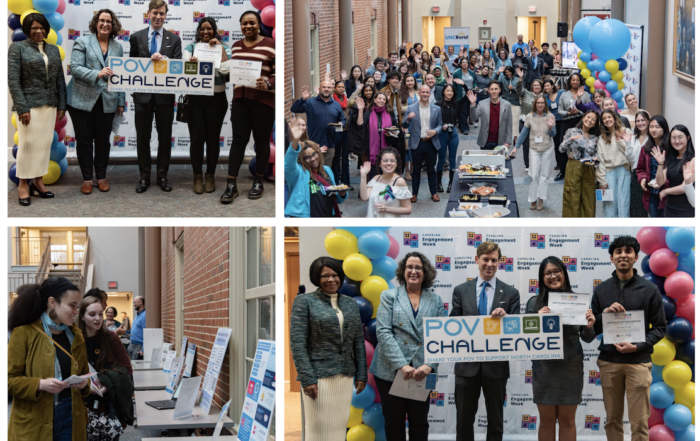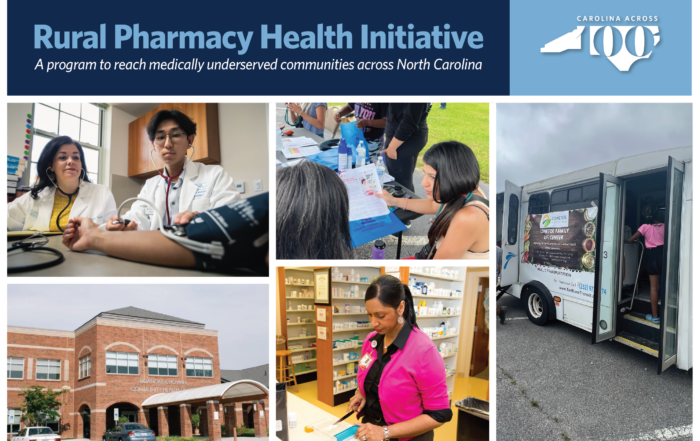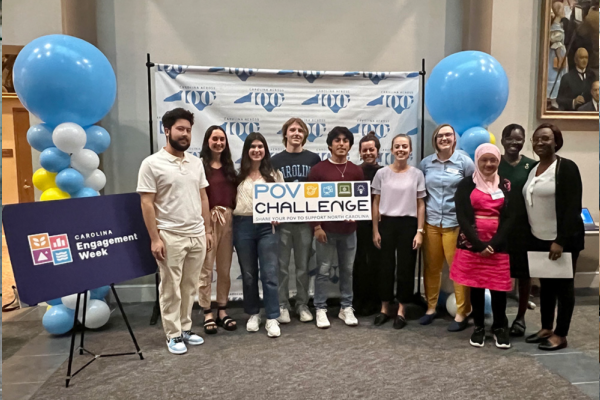Children / Child Welfare
COVID-19 and North Carolina’s Babies and Young Children
Sarah Verbiest, Gillings School of Global Public Health
May 4, 2022

While difficult for everyone, the COVID-19 pandemic has been particularly hard for families with babies and young children – economically, emotionally, developmentally, and physically.
Falling behind and facing persistent challenges
Infant mortality, a sensitive indicator of well-being, has increased in North Carolina. After making some progress, our state has fallen behind on this measure and is again ranked near the bottom in the nation for infant mortality rates. While state-level data is not yet available, nationally and internationally maternal mortality has also increased and is expected to have increased in North Carolina as well. When it comes to both infant and maternal health, Black mothers, birthing people, and babies have endured the greatest hardship, experiencing death at a rate 2 to 3 times greater than whites.
Access to prenatal and postpartum care and pediatric preventive care visits, which were a challenge even prior to the pandemic, have all decreased. A 2022 study by Lebrun-Harris et al found that 26.4% of American households reported that at least one child in the home had missed one or more preventive visits due to COVID-19, and missed visits were even more commonplace for people who reported financial hardships due to COVID-19. At the same time, parental anxiety has increased due to the COVID pandemic (Patrick 2020, Russell 2020, van Tilburg 2020), especially for families whose child has acute or chronic health care needs (Scherer 2019).
Further, one of the most devastating impacts of the pandemic has been the death of loved ones. More than 3,600 children in North Carolina are coping with the death of a caregiver (defined as parents or grandparents who live in the same house and provide for some of the child’s basic needs) due to COVID-19. The loss of a caregiver can lead to decreased mental health, lower self-esteem, and increases in exploitation, and a host of other hardships.
Difficult decisions every day
Parents and other caretakers have also had to navigate difficult decisions around masking and other behaviors to reduce exposure to the virus. This stress may be exacerbated for parents whose children are 5 years and younger, as they are not yet eligible to be vaccinated. Many caregivers already experience anxiety with parenting (Stearns 2004) as well as worsening mental health symptoms, higher levels of perceived stress, increased alcohol consumption, and parental burnout. It is reasonable to assume that COVID-19 has created an added layer of anxiety. Through the pandemic, parents have also reported increased rates of child stress and worsening child behavioral health (Gadermann et al., 2021; Kerr et al., 2021).
Data from the Carolina Across 100 listening phase points to some concern among North Carolinians about increases in child abuse and substance abuse during the pandemic. For instance, 11 percent of survey respondents indicated that substance abuse had gotten worse due to COVID-19 and six percent felt that child abuse had gotten worse. Additionally, when asked what population(s) had been most affected by COVID-19, more than one-fifth (21%) said mothers. This was the third most common response after working class individuals (34%) and people of color (23%).
Making changes to move our children forward
Providing supports to help reduce anxiety for parents is important for child well-being. (Hakanen 2019)
The North Carolina Early Childhood Action Plan (ECAP), released in 2019, established ten goals aimed at addressing children’s ability to live healthy lives, have safe and nurturing relationships, learn, and be ready to succeed. Each of the ten goals included targets and sub-targets that serve as indicators of improvement as the State works towards those goals. COVID-19 required the programs to suddenly shift how they function and serve families. The pandemic has, and will continue to have, major public health implications. Children and families will experience ripple effects from school closures, the economic recession, extended time away from peers, and strain to the social safety net. And again, Black and Brown families, in particular, have borne a greater brunt of these types of impacts from COVID-19 due to structural racism and systemic oppression.
Dr. Paul Lanier, Associate Director of Child and Family Well-Being at the Jordan Institute, and colleagues recorded changes to NC programs and policies that serve North Carolina families in response to the COVID-19 pandemic, identified data limitations resulting from those changes, and made recommendations moving forward. To read the full report, please click North Carolina Early Childhood Action Plan: Data Consideration In Response To COVID-19 Program and Policy Changes. Click here to read the Executive Summary. Briefs on each of the ten ECAP goal areas are also available. Click here to access the individual briefs.
Looking forward, what is needed to support North Carolina families and young children? First, income supports such as child tax credits, earned income tax credits, and subsidies are essential for stabilizing household budgets and lifting families out of poverty. Financial and material support, such as diapers, are also important for families struggling with economic insecurity. Likewise, paid sick leave, paid parental/family leave, and access to health insurance are essential, well-documented ways to improve infant and child bonding, well-being, and parental mental health. Leave is also particularly important to infant and child well-being so families can get children to preventive appointments. Steps need to be taken to rebuild North Carolina’s childcare system which was significantly disrupted by the pandemic. Infancy and early childhood are a sensitive time of development for children and their parents and investing in supports and resources for this population has the potential to pay dividends for generations to come.
UNC-Chapel Hill’s Carolina Across 100 initiative is a 5-year program charged by Chancellor Kevin Guskiewicz which will partner with communities in all 100 North Carolina Counties to aid in pandemic recovery and help build resiliency. Stay connected with Carolina Across 100 as we continue to share data and resources.






